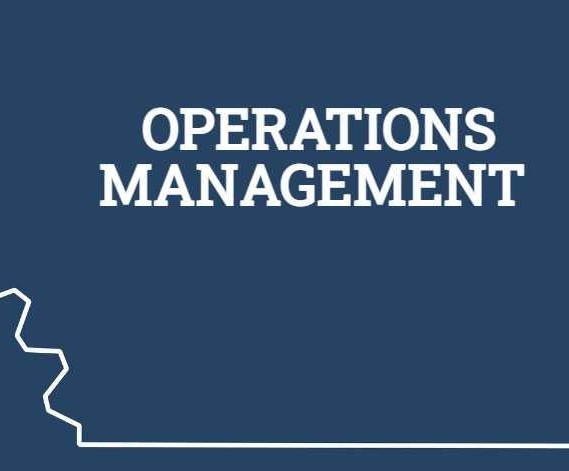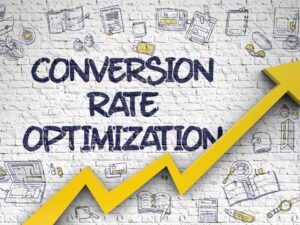Operations Management
- Description
- Curriculum

I. Introduction:
In today’s competitive business landscape, efficient operations are the cornerstone of success.
This comprehensive course delves into the world of operations management, equipping you with the knowledge and skills to optimize processes, ensure quality, and maximize performance within your organization. We’ll explore the core principles of operations management, from strategic planning to daily execution.
Learn to design and manage efficient production systems, manage inventory effectively, analyze data to identify improvement opportunities, and ensure the delivery of high-quality goods and services.
Whether you’re a budding entrepreneur, a seasoned manager, or simply someone curious about the inner workings of a successful organization, this course provides a valuable foundation for understanding and optimizing operational excellence.
II. Course Objectives:
- Gain a comprehensive understanding of the core concepts and principles of operations management.
- Explore the various functions involved in operations management, including forecasting, production planning, inventory control, and quality management.
- Master the tools and techniques for designing efficient production systems, considering factors like process flow, capacity planning, and layout design.
- Develop strategies for effective inventory management, minimizing costs while ensuring availability to meet customer demand.
- Analyze data to identify areas for improvement in processes, quality control, and overall operational efficiency.
- Understand the impact of supply chain management on operational effectiveness.
- Explore strategies for maintaining quality standards and ensuring customer satisfaction.
- Develop a strong understanding of key performance indicators (KPIs) used to measure operational performance.
- Learn how to leverage technology to improve processes and optimize your operations.
III. Course Highlights:
Operations Management Fundamentals:
- Demystify the core functions and responsibilities of operations management within an organization.
- Understand the role of operations management in achieving strategic business objectives.
- Explore various operations management philosophies, including lean manufacturing, Six Sigma, and Theory of Constraints.
Process Design and Analysis:
- Master the tools and techniques for process mapping, identifying bottlenecks, and streamlining workflows.
- Learn how to design and implement efficient production systems based on product type and volume.
- Explore capacity planning techniques to ensure sufficient resources are available to meet production demands.
Inventory Management Strategies:
- Analyze different inventory control models, such as Economic Order Quantity (EOQ) and Just-in-Time (JIT).
- Learn strategies for balancing inventory carrying costs with stock availability to avoid stockouts.
- Understand forecasting methods used to predict future demand and inform inventory planning decisions.
Quality Management & Control:
- Explore the importance of quality management for customer satisfaction and operational efficiency.
- Learn about various quality control methods and tools, such as Statistical Process Control (SPC) and Six Sigma.
- Develop strategies for continuous quality improvement throughout the production process.
Supply Chain Management:
- Understand the critical role of supply chain management in ensuring the smooth flow of materials, information, and finished goods.
- Analyze supplier relationships and inventory management strategies within a supply chain context.
- Explore technologies employed in supply chain management and logistics optimization.
Performance Measurement & Improvement:
- Identify key performance indicators (KPIs) relevant to different aspects of operations management.
- Analyze data to identify areas for improvement in efficiency, quality, and cost optimization.
- Develop continuous improvement processes to enhance operational performance.
The Role of Technology:
- Explore how technologies like Enterprise Resource Planning (ERP) and Artificial Intelligence (AI) can automate processes and optimize operations.
- Learn about data analytics tools used to analyze operational data and gain insights for improvement.
- Understand the impact of digitalization on the future of operations management.
IV. Target Audience:
This course is designed for a broad audience, including:
- Business owners, managers, and supervisors seeking to enhance operational efficiency in their organizations.
- Individuals interested in launching their own businesses and need a strong foundation in operations management.
- Supply chain professionals looking to optimize inventory management and logistics processes.
- Engineering and operations professionals seeking to expand their knowledge base.
- Anyone curious about the inner workings of a successful organization’s operations.
-
1Nvidia New Technologies Slides
Welcome to your first slider tutorial. This slides will start with a simple introduction. Then, You will open up google cause I"ll show you where you can download the blender software and which version of it will we be using in the entire course period.
Note: The download link is available with the lecture, plus the .pdf file is also included for you to download if you still need help downloading the software.
-
2Engine Target Audience
-
3Quiz: Mobile / Native Apps
-
4Realistic Graphic on UE4
-
5Volta GPU for optimization.
The Tensor Core GPU Architecture designed to Bring AI to Every Industry. Equipped with 640 Tensor Cores, Volta delivers over 100 teraflops per second (TFLOPS) of deep learning performance, over a 5X increase compared to prior generation NVIDIA Pascal architecture.
-
6Deep Learning








